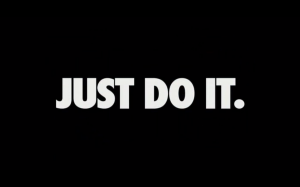Milk
I really enjoyed this film as I found it was very comedic. I also loved some of the shoots – like the motion shot from the car. The dramatic music at the start was also great and I felt it set up the mood within the film well. The pickles guy was casted brilliantly. I would have loved to have seen more of him. I felt as though he was awesome in his role. The plot was simple, yet affective.All up, I thought it was pretty great to watch!
Granny Theft Auto
I found this film very entertaining. The grandma was my favourite. She was hilarious and I feel the script was very well written. The lines that she said about pasta and everything else she said, heavily established the character. The twist of the two cars was a complete surprise to me – and this was executed nicely. All up, I thought it was funny and very entertaining.
Paperboy
This film had a great idea about it. I really liked the plot, again something so simple, but yet so affective. I thought the guy was cast really well and the sneak in to get the magazine was done nicely – and it was kept suspenseful. I found it funny and it made me a little nervous as I didn’t know how she was going to act if she found out. Although, I would have liked to have seen a bigger variety of shots to create a sexual tension between the characters. I would have liked to have known the girl next door more – what she was feeling. But other than that, I thought it was super funny and scripted well.
QUESTION 2
This as been one of my favourite subject this far within the course. It was hands on – which I enjoyed a lot. Looking back, I feel I did achieve the goals I set out to do. One being getting involved within the production side, which I did. I put my hand up for cinematographer. I learnt that this position is so stressful – but the good sort of stress that makes you want to keep doing it.
I also wanted to focus on working within a team. I learnt to love my group so much! So many people in my group have so much potential and I really enjoyed listening to their perspectives and opinions on the film and on my work. They made me feel as though I could work creatively with the camera and they would support my decisions and offer their opinions (which I took into account). I really did enjoy this process. I thought it was so much fun.
Creatively, I felt I did push myself to try new things. Although, sometimes I wasn’t able to do so because it didn’t fit with how the group wanted it to be. Which I found to be okay, because I really loved how it turned out and I value their opinions immensely. Robin was also really great when listening to my idea’s and how I should go about them. I felt fully supported in this area and took risks creatively where I could.
I have very much enjoyed this course, it was so much fun and I learnt so much. I know I will be able to use a lot of what I learnt for future projects.
